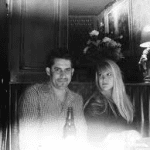 Sherry Gaba LCSW, Psychotherapist, Life
Sherry Gaba LCSW, Psychotherapist, Life
& Recovery Coach is featured Celebrity Rehab on VH1. Sherry is the author
of “The Law of Sobriety” which
uses the law of attraction to recover from any addiction. Please download your
copy of “Manifest Holistic
Health” from Sherry’s Enrich Your Life Series. Contact Sherry at sherry@sgabatherapy.com for webinars,
teleseminars, coaching packages and speaking engagements. Listen to Sherry on “A Moment of Change with Sherry Gaba”on CBS Radio.
Everyone loves to eat their favorite foods and, the truth be
told, everyone overindulges in overeating at times in their life. However, for
some people, food consumption has become a way to cope with feelings of loss,
sadness, guilt, depression, anxiety or feelings of isolation and disconnection
from positive human interactions. Food becomes the substitute for comfort and
reward because it has the same effect on the chemicals in the brain. It
provides an instant feeling of satisfaction, happiness and pleasure. Some foods
are more likely to cause these chemical changes in the brain because of the
components and chemicals found within the food. These are the foods people
crave, chocolate, fatty and salty foods or sweet foods, we all know what our
particular food demons are.
Understanding the early signs of food addiction can help in
preventing the multitude of health complications that can go along with being a
compulsive eater. Watching your food intake and taking note of any changes in
how you eat, when you eat and why you eat is the first critical step. Some
important questions to ask yourself if you notice a change in your consumption
of food include:
- Am I really hungry or am I feeling another
emotion (anger, loss, guilt, grief, helplessness, anxiety, sadness) when I eat? - Am I gulping my food and eating rapidly when I
eat even if I have time to eat slowly and enjoy each bite? - Am I eating alone more that normal?
- Has my weight increased rapidly or do I have
constant weight fluctuations? - Do I use laxatives or purge after eating in an
attempt to control my weight? - Do I eat more frequently and larger amounts than
usual? - Do I tend to eat less when out with friends and
then eat again when I am alone? - Do I hide my eating from others?
- Are my food choices becoming increasingly
fixated on specific types of foods?
If you believe that you have a food addiction it is
important to seek counseling to deal with the underlying issues that are
creating the problem. Talking to a professional that is trained in food
addiction recovery will help in changing your outlook on life and changing your
thinking about yourself, your relationship with food and your healthy future.


